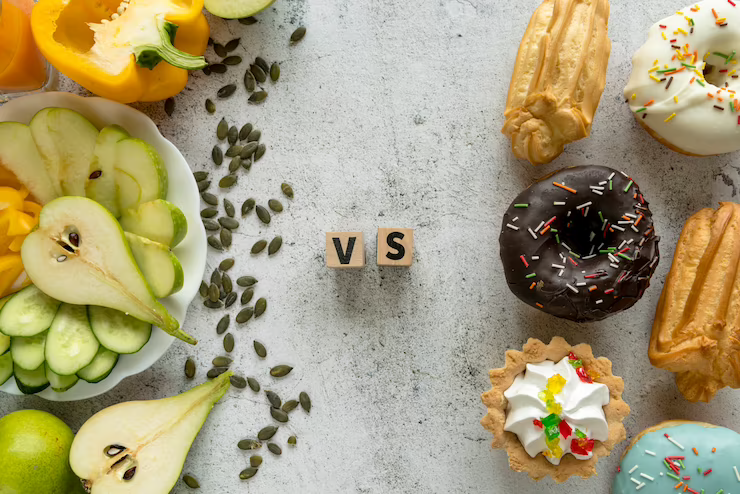The Benefits of Eating Natural Foods Versus Processed Foods

Eating natural foods can help you avoid several diseases and illnesses. Specifically, eating more fruits and vegetables may reduce your risk of heart disease.
However, processed foods can also be beneficial. They can provide certain nutrients for various purposes, such as protein in cereals and reduced sugar in fruit drinks.
Processed Foods
Foods are generally considered processed if they have been altered for some reason before you buy them, such as being packaged, canned, soaked, roasted, or vacuum-packed. Processed foods range from minimally processed (like bagged salad, pre-cut green beans, or frozen fruit and vegetables) to highly processed (like chips, sweetened beverages, or microwaveable dinners).
The main purpose of processing is to improve food quality and shelf life. This can be done through pasteurization, freezing, fermentation, or other processes that kill microorganisms and increase the life of a food product.
Typically, processed foods contain fewer nutrients than unprocessed foods because of the chemicals and preservatives used to preserve them. But they may still provide some benefits to your diet.
Some processed foods are fortified with vitamins, minerals, and other nutrients to help fill nutritional gaps.
Another benefit of eating processed foods is the convenience factor. This is a major driver behind the popularity of snack foods such as potato chips and sweetened drinks.
Processed foods are often fortified with fiber, protein, and calcium to help fill nutritional gaps, such as when you don’t eat enough whole grains or fresh fruits and veggies. This can be helpful for people who want to reach their daily dietary requirements quicker and more easily without worrying about the health risks associated with not consuming enough whole foods or natural fruits, vegetables, grains, nuts, and seeds.
Foods that are minimally processed tend to be the healthiest. They can provide many of the same benefits as whole foods and may even be better for you than the processed versions.
Read also: Exploring the Versatility of Olīves and How to Cook with Them
Organic Foods
Eating organic foods can be a good way to avoid pesticides and antibiotic-resistant bacteria. It also can make you feel better and improve your immune system.
In contrast, conventional farming methods often include synthetic chemicals, such as pesticides and herbicides, to control weeds and disease-causing insects. They also commonly use growth hormones and antibiotics to enhance animal production.
This has been shown to have serious health effects on humans. Studies show that consuming non-organic food can cause a weakening of the immune system and the development of allergies and asthma.
Many people choose to go organic because of the potential to reduce their exposure to pesticides and other artificial chemicals that can be toxic to human health. Some studies have found that organic produce has lower levels of cadmium and other dangerous heavy metals than non-organic foods.
There is evidence that organically grown foods may be higher in certain vitamins, minerals, and antioxidants than their non-organic counterparts. These include vitamin C, magnesium, iron, and phosphorus.
Other evidence suggests that organic dairy products and meats have more omega-3 fatty acids than their conventionally produced counterparts. This is because animals eat grasses rich in these fatty acids, which can be incorporated into their milk and meat.
However, other research has suggested that organic foods may not be as nutritious as you think. The nutritional value of organically grown foods depends on various factors, including the types of seeds and soil used.
It is also important to remember that while the benefits of eating organic are largely positive, they do not guarantee improved health outcomes.
Ultimately, it is important to remember that eating a varied diet can be healthy for all of us. Ideally, it would help if you aimed to eat at least two servings of fruit and vegetables and a couple of servings of starchy carbohydrate foods (such as pasta, bread, rice, and breakfast cereals).
Read also: Top 5 Reasons Honey Bunches of Oats Nutrition is a Healthy Breakfast Option
- Art
- Causes
- Crafts
- Dance
- Drinks
- Film
- Fitness
- Food
- Giochi
- Gardening
- Health
- Home
- Literature
- Music
- Networking
- Altre informazioni
- Party
- Religion
- Shopping
- Sports
- Theater
- Wellness
